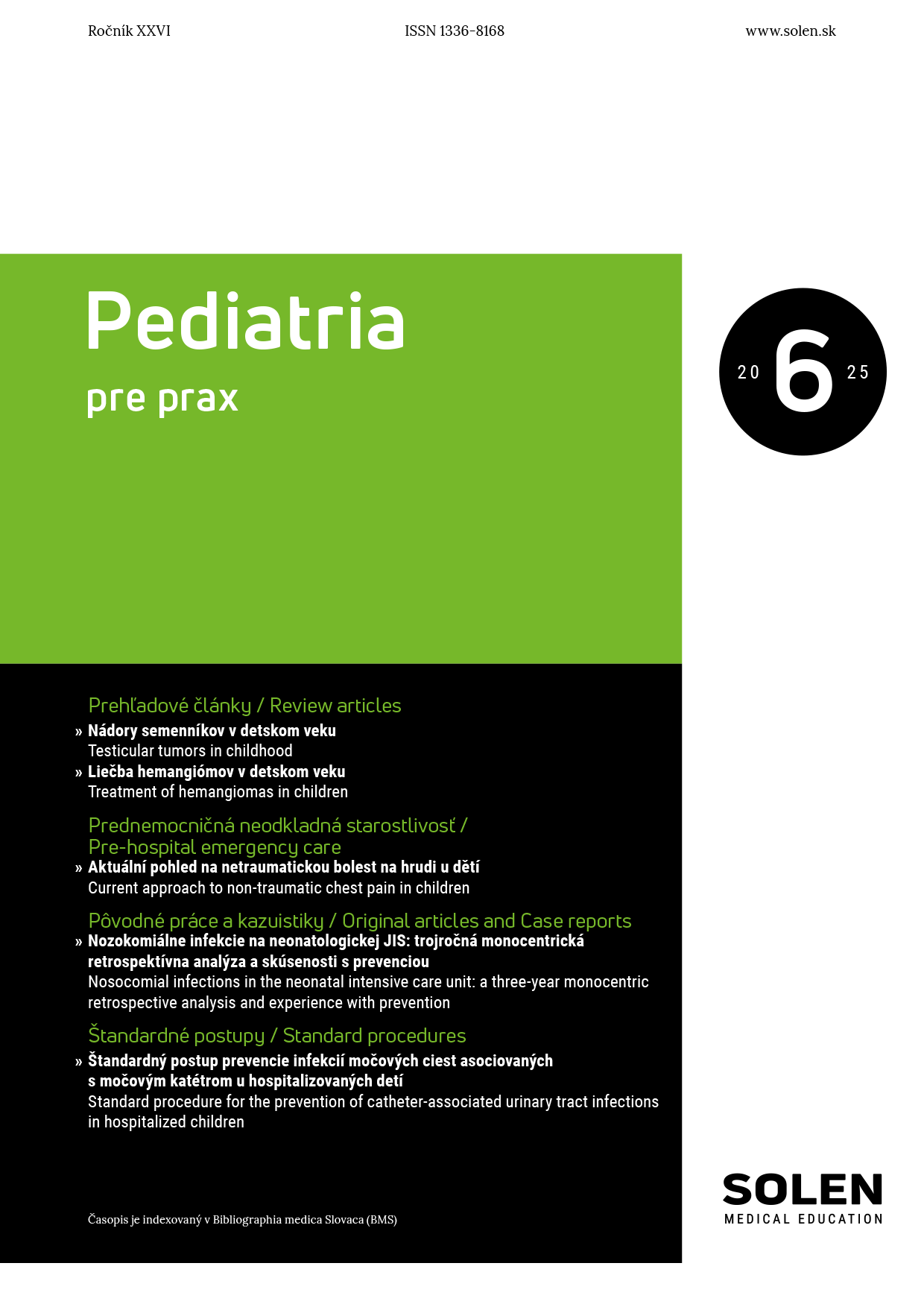Lekárska genetika a diagnostika 2/2025
Sacrococcygeal teratoma (SCT) – Are we always able to provide good counseling to expectant parents?
Sacrococcygeal teratomas (SCT) represent the most common germ cell tumors in infancy and childhood. If diagnosed in the prenatal period, fetuses may be at risk for life-threatening complications. A high-output cardiac failure due to the tumor vascular shunting, possibly leading to fetal hydrops and intrauterine demise, may be the most correct explanation. SCT is very rare and there are few opportunities to encounter this disease not only for obstetricians and pediatricians but also for pediatric surgeons. Risk factors for poor pregnancy outcomes are reviewed in the article. The quality of life after curative surgery may also be reduced. The major long-term sequelae are: an impaired bowel function, urinary incontinence, lower leg palsy, sexual dysfunction and cosmetically unacceptable scarring. The incidence of malignant types is low, but should be stated that even mature and immature teratomas may develop malignant recurrence.
Keywords: sacrococcygeal teratomas, prenatal diagnosis, long term complications, anorectal dysfunction, urinary dysfunction, tumor recurrence

















